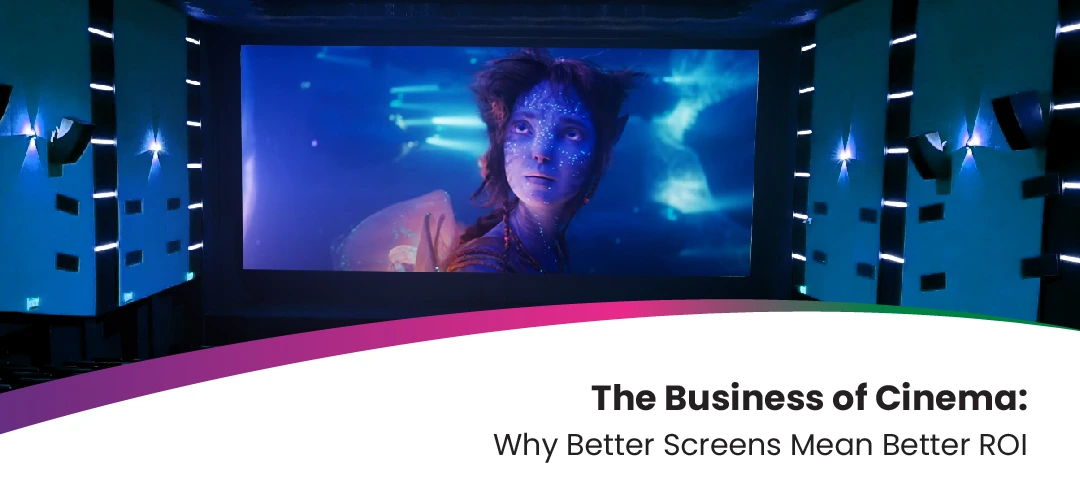
Cinema screens are the heart of any movie theater, providing the canvas on which stories come to life. Over time, these screens can accumulate dust, dirt, and other contaminants, affecting the quality of the viewing experience. Proper maintenance and timely replacement are crucial to ensuring that audiences enjoy the best possible picture quality.
Importance of cinema screen maintenance
Cinema screens need regular maintenance to function optimally. Dust and dirt can accumulate on screens, leading to a decline in picture quality. Regular cleaning helps maintain the screen’s reflectivity and ensures that the projected image is sharp and clear. It is generally recommended to clean cinema screens every six months to prevent significant buildup and preserve the viewing experience.
Signs You Need to Replace Your Cinema Screen
1. Visible Wear and Tear
Over time, cinema screens can show signs of wear and tear that negatively impact the viewing experience. Some common issues include:
Scratches or Tears: Any physical damage, such as scratches or tears, can create distracting lines or spots on the screen, interrupting the audience’s immersion in the film.
Discoloration: Screens can develop yellowing, fading, or color spots that alter the intended colors of the movie, leading to a poor visual experience.
Warping or Sagging: When a screen warps or sags, it can cause image distortion, making it difficult for the audience to focus on the picture.
2. Decline in Picture Quality
Another sign that a cinema screen may need replacing is a noticeable decline in picture quality:
Loss of Reflectivity: Over time, screens can lose their reflectivity, resulting in a dimmer image that lacks the vibrancy audiences expect.
Hotspots or Uneven Brightness: If you notice areas of the screen that are brighter than others, it could indicate hotspots or uneven brightness, which can be distracting and reduce the overall viewing quality.
3. Environmental Damage
Environmental factors can also affect the longevity and performance of cinema screens:
Humidity and Temperature Changes: Fluctuations in humidity and temperature can degrade screen materials, leading to warping or sagging.
Dust and Mold Accumulation: Dust and mold can accumulate on screens, degrading the surface and image quality. Regular maintenance can mitigate these issues, but significant damage may require screen replacement.
4. Technological Advancements
The rapid advancement of projector technology means that older screens may not be compatible with the latest equipment.
a. Newer screens offer several benefits:
Better Reflectivity and Contrast: Modern screen materials are designed to enhance reflectivity and contrast, providing a more dynamic and immersive viewing experience.
Compatibility with New Projectors: As projectors evolve, screens must keep up. Screens compatible with 4K and 8K projectors can deliver stunning detail and clarity that older screens simply cannot match.
5. Cleaning and Maintenance Tips
a. Coated Screens
Coated screens are more delicate and require gentle handling to avoid damage:
Dry Cleaning Methods: Use fine and soft brushes, like camel hair brushes, or microfiber cloths to clean coated screens.
Cleaning Method: Clean using top-to-bottom strokes, shaking off the cloth after each stroke, and changing the cloth frequently to avoid spreading dust and dirt.
b. Uncoated Screens
Uncoated screens are more robust and can handle slightly more aggressive cleaning methods:
Light Wiping with a Damp Cloth: For everyday cleaning, lightly wipe the screen with a damp cloth.
Mild Liquid Soap: For stubborn grime, use a mild, liquid soap and a soft cloth to clean the screen. Ensure the cloth is rinsed regularly to maintain cleanliness.
Vacuuming and Cleaning the Back: Don’t forget to vacuum and clean the back portion of the screen to remove dust and prevent it from spreading to the front.
6. Lifespan and Replacement Timing
Cinema screens have a typical lifespan of 5-7 years, which can extend to 10+ years with proper maintenance.
However, several factors can affect this lifespan:
Traffic: High traffic areas may see more wear and tear, reducing the screen’s lifespan.
Cleaning Frequency: Regular and proper cleaning can extend the life of a screen.
Environmental Conditions: Screens exposed to fluctuating environmental conditions may require more frequent replacements.
It is also recommended to replace cinema screens when upgrading projectors to ensure optimal performance and compatibility.
Conclusion
Maintaining and replacing cinema screens is essential for providing the best possible viewing experience. Signs such as visible wear and tear, decline in picture quality, and environmental damage indicate when a screen may need replacing. A well-maintained screen not only enhances the audience’s experience but also reflects positively on the cinema itself.
FAQ’s
What are the common signs that a cinema screen needs replacement?
Signs include discoloration, scratches, visible wear and tear, loss of brightness, and poor image quality.
How does discoloration affect the viewing experience?
Discoloration can distort colors on-screen, leading to a diminished and less immersive viewing experience for audiences.
What causes scratches or tears on cinema screens?
Frequent use, improper cleaning, or accidental damage can cause scratches or tears, which negatively impact the image quality.
How often should cinema screens be replaced?
Screen replacement depends on usage, maintenance, and the screen material but is typically required every 7–10 years.
What are the benefits of replacing an outdated cinema screen?
Replacing a screen restores image clarity, improves audience satisfaction, and ensures compatibility with modern projection systems.
Related articles



